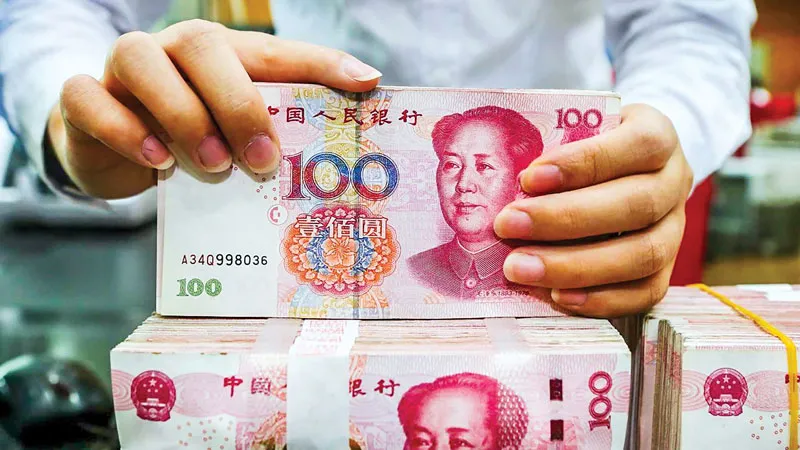
China has pumped more than CNY 1,200 bn (about USD 174 bn) into their economy to stabilize the financial market. Currencies of some Asia-Pacific countries like Thailand and Australia have retreated by more than 4% against the US dollar since the beginning of the year.
The Australian dollar has hit a decade low since the global financial crisis in 2008, while Thailand has cut down on its social policy interest rate to a record low of just 1%. Nonetheless, this crisis situation must be weighed carefully before expanding the monetary policy in expectation of stimulating the national economy.
Risk of monetary uncertainty
As far as expectations of a positive effect is concerned, expanding the monetary policy as a stimulus for economic growth can hardly be considered sufficiently workable, as risk of monetary uncertainty is high. Reality is that liquidity in the financial system has been quite strong since 2019.
Since early February this year, interest rates on overnight and two-week loans have shown a tendency to decrease and remain low. There is no liquidity stress, so for what reason is there need to go for expanding the monetary policy by reducing short-term interest rates or pumping more liquidity into the economy?
What the economy needs is a decrease in the interest rates of medium and long-term loans for businesses, as the instruments of monetary policy of the State Bank of Vietnam (SBV) are mostly instruments that can cause direct effect on short-term loans. SBV needs to buy medium-term government bonds (GBs), to provide support for the economy as it did during the period after 2007-2009 during the global financial crisis. Basically SBV prints money to give loan to the government on a medium and long-term basis, just like some central banks in the world do.
In Vietnam there is no close relationship between interest rates on medium and long-term GBs and those on medium and long-term loans from SBV, as well as corporate bonds (CPs). Some businesses are short of capital due to various problems, such as real estate businesses, therefore, however low the interest on GBs, such businesses will still be short of capital. On the other hand, the rate of interest on GBs in January was a record low, between 1.8% (5-year term) and 3.8% (30-year term), which means there is not much space for intervention in this way.
So we can see that expanding monetary policies is not very likely to work. On the contrary, information about expanding monetary policies or administrative measures for compressing interest rates on bank deposits may make people rush for purchases of other alternate property, causing uncertainty in the monetary market.
Gold prices are on the increase again in international markets, and policymakers should be cautious and well aware of possible developments. If people change large amounts of cash into gold, liquidity in the financial market will be affected. Therefore, instead of reducing short-term deposit interest rates now, it is advisable to avoid such risks.
Risk of US tariff
The US has just introduced some new regulations allowing the Trump Administration to impose certain taxes on countries that keep their currency low. According to the new regulations, US companies may submit documents to the US Department of Commerce (DOC) to file a complaint in which they can claim products exported to the US are being subsidized through low value of the currency by the exporters. This new regulation provides DOC with more flexible measures for raising tariffs.
Vietnam happens to be on this list of countries. If Vietnam tries to expand the monetary policy in an effort to reduce the value of the Vietnamese dong, and directly or indirectly provides support to Vietnamese exporters, Vietnamese companies will probably face higher tariffs in accordance with the new US regulation. Therefore, any thoughtless action may lead to more disadvantages than advantages.
Alternate instrument: fiscal policy
The effects of the Covid-19 epidemic may be somewhat alleviated through support in terms of taxes and an increase in public spending. More specifically, businesses may receive part of their corporate taxes they paid last year and pay lower amount of social security insurance premium due to the epidemic. On the other hand, it is essential to have a stimulus package in the form of public spending for improvement of infrastructure and accelerate disbursement of funds for major infrastructure projects to create more jobs and reduce logistic costs, which are among the highest in the region.
A preferential credit package may also help. What needs pondering is how to avoid disbursement to wrong businesses. These measures certainly require bigger budget deficits than planned and increase in loans. During an epidemic, however, it is vital to increase spending and provide loans to prevent the collapse of businesses, especially small and medium-size businesses.
In fact, in the context of such an epidemic, doing away with unnecessary paper work and eradicating red tape can help businesses cut down on unnecessary expenses. However, it is very hard to take this measure because of a rigid administrative system when economic growth is still good.
The present situation does give us an opportunity to make the economy freer and flexible. These are things that would bring about real long-term benefits, rather than short-term expansion of monetary policies.




















